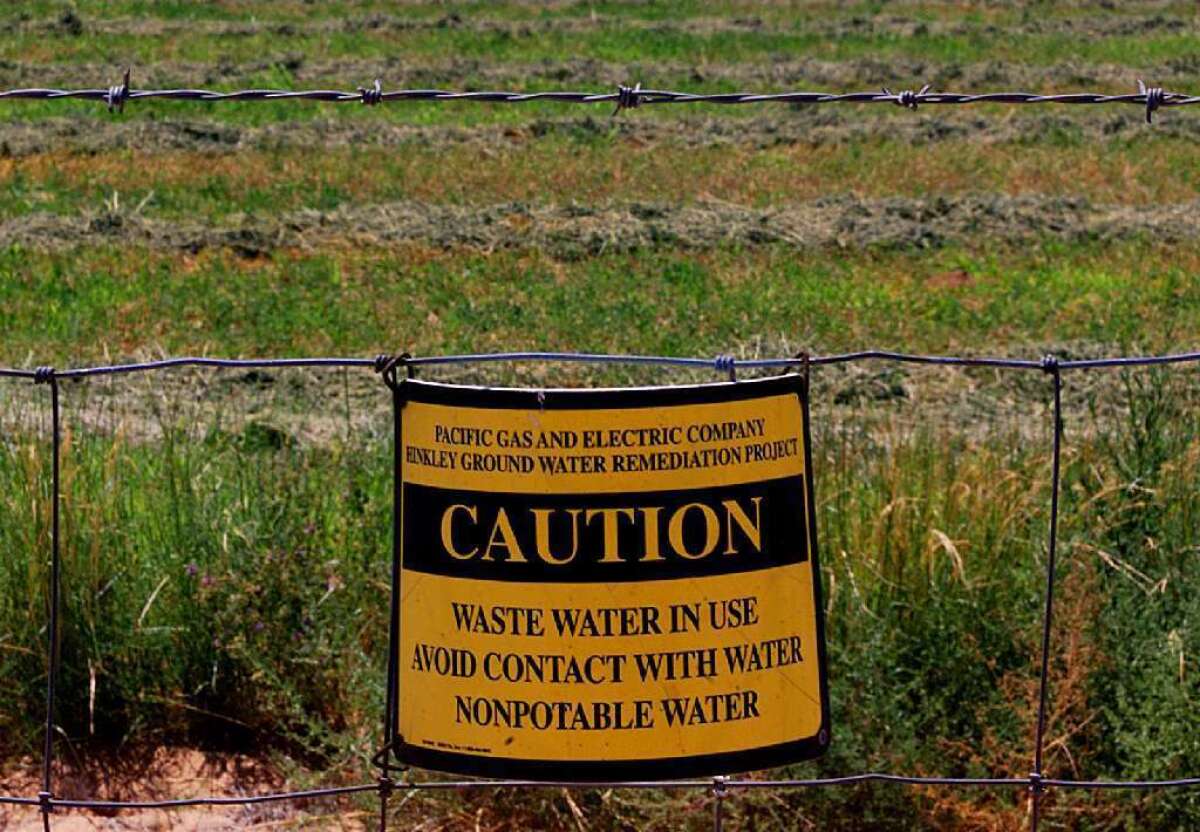California to set chromium limit for drinking water supplies

- Share via
The state Department of Public Health is adopting the nation’s first-ever drinking water standard for hexavalent chromium, a carcinogen found in water supplies across the state.
The department announced Tuesday that it has submitted a final regulation setting a limit of 10 parts per billion in public drinking water supplies, a level that will require more than 100 water systems to treat for the contaminant.
If approved as expected by the Office of Administrative Law, the standard would take effect July 1. Public health Director Ron Chapman said the limit “will protect public health while taking into consideration economic and technical feasibility as required by law.”
Known as chromium 6, the toxic heavy metal makes its way into groundwater naturally from geological formations. It also is an industrial pollutant made famous for tainting water supplies in the desert town of Hinkley, Calif., inspiring the movie “Erin Brockovich.”
Current state and federal standards are for total chromium — which includes trivalent chromium, an essential nutrient found naturally in foods.
The 10 parts per billion hexavalent standard was proposed last year. It is 500 times greater than a non-enforceable public health goal set earlier by the state Environmental Protection Agency, sparking criticism from environmentalists that the new limit isn’t stringent enough.
The “long-delayed action today simply does not provide enough protection for people’s health,” said Avinash Kar, an attorney with the Natural Resources Defense Council, which sued the department to force it to issue a standard. “The department both inflated water treatment costs and underestimated the benefits of a stronger standard.”
A number of water districts, on the other hand, complained that the new limit — the equivalent of 10 drops of water in an Olympic-sized swimming pool — isn’t scientifically justified and would be prohibitively expensive to meet.
Rich Atwater, executive director of the Southern California Water Committee, said communities in the Coachella Valley and others across the state with naturally occurring chromium 6 in their aquifers “will be spending an extraordinary amount of local customers’ water bills on state-of-the-art new treatment systems.”
Los Angeles and other cities already have been treating industrially contaminated groundwater supplies in the San Fernando Valley to a level of 5 parts per billion of chromium 6, so they will not have to use new treatments to comply with the standard.







